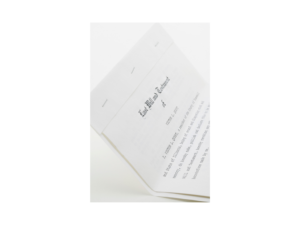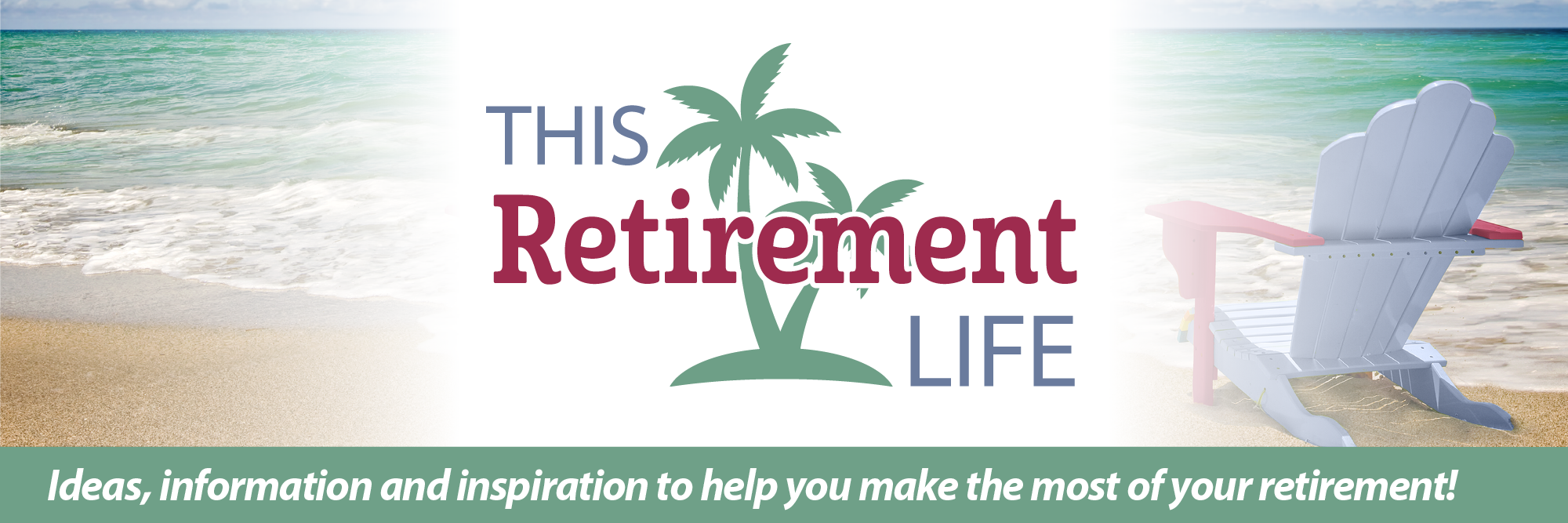When writing about wills, personal finance writers usually focus on the shocking fact that six out of ten people do not have a will, or that famous people like Prince, Sonny Bono and Aretha Franklin left a mess when they died without a will.
True, all of that is noteworthy and shocking, but that story has been told often and well. Sadly, it hasn’t seemed to help. The percentage of the population without wills remains stubbornly in the same range, decade after decade, depending on the survey and its parameters.
Nor is the problem unique to America. Results are similar wherever you look. In the United Kingdom (UK), Canada and Australia, polls show more than 50 percent of the population do not have wills.
For this article, we will take a different angle. Let’s assume that, since you are a reader of This Retirement Life, you must be pretty smart. So, let’s assume you are one of the roughly 40 percent of the population who have wills. Go ahead, take a moment now to pat yourself on the back.
Before you congratulate yourself too much, here’s the rest of the story: Writing a will is only Step One in good estate planning, and if we’re not careful, it may make us overconfident or complacent, thinking the job is finished.
The story of Sam and Maria
Consider the case of a hypothetical couple who we will call Sam and Maria. They are in their 60s and life is good. Sam and Maria have only been married to each other for a few years. It’s a second marriage for both of them. Sam went through a nasty divorce (is there another kind?) and is not on speaking terms with his ex.
 Sam and Maria are reasonably savvy people. They understand the importance of wills. After they married, Maria ordered an online will kit, which the couple completed and signed in front of witnesses to make the wills legal. This will supersedes wills they had each previously written while married to their first spouses. Good move on their part.
Sam and Maria are reasonably savvy people. They understand the importance of wills. After they married, Maria ordered an online will kit, which the couple completed and signed in front of witnesses to make the wills legal. This will supersedes wills they had each previously written while married to their first spouses. Good move on their part.
Job done, or so they thought.
One day, Sam came in from work, complaining of how tired he was. He lay down on the couch to rest, and well, you can guess the rest of the story. He suffered a massive heart attack and died before medics arrived. Very sad, but it gets worse.
Maria, now a widow, and Sam’s children from his first marriage all expected to receive inheritance money from Sam. After all, that’s what the will stated. His properly written, legally signed will. But that’s not exactly what happened.
Turns out Sam’s two largest assets were his $500,000 life insurance policy and his 401(k) retirement plan from work, worth about $700,000 at the time of his death. Both have beneficiary designation clauses, which Sam completed many years ago and forgot about. Beneficiary clauses, as any good attorney or financial planner knows, take precedence over a person’s will.
You know where this is going, right? Sam’s ex-wife, who he hasn’t seen or spoken to since the divorce, was the primary beneficiary on both his life insurance and 401(k), with their children named as contingent beneficiaries. Since the ex-wife is still living, she just hit the lottery. She just inherited Sam’s $1.2 million, all perfectly legal.
Building a Solid Estate Plan
As you can see from this story, writing a will, while very important, is only one step in good estate planning.
To make sure your estate gets settled the way you want, follow these suggestions:
#1 MakE AN INVENTORY OF YOUR ASSETS
Your estate is all about the distribution of your assets, so a good first step is to make sure you (and your spouse and/or children) have a good understanding of what you own and where it is. One technique is to prepare a net worth statement, listing all assets and debts, that you faithfully review and update once per year. You will probably keep this document on your computer, but print the most recent one and leave it with your will or other estate-planning documents. To help your spouse or beneficiary, be sure to include the value of life insurance policies.
#2 Keep Your Estate Planning Records in an Accessible Spot
Locking your will, net worth statement and other paperwork in a bank safety deposit box can be a mistake, since access to the box might be blocked after your death. You do, however, need to keep your records together, perhaps in a home safe, file cabinet or legacy box, and make sure your spouse, children or other next-of-kin know where they are and how to access them. Don’t make your spouse or beneficiary go on a scavenger hunt around your house or office to track down all of the relevant documents, should something happen to you.
#3 Review and Update Beneficiary Clauses
Don’t let what happened to poor Sam happen to you. By failing to update his beneficiary clauses, Sam let down his wife and children, but made his ex-wife very happy. Make it a point to periodically review life insurance, retirement accounts, bank accounts, annuities, and any other assets that provide beneficiary clauses. At a minimum, be sure to update beneficiary clauses after any significant life change, such as a divorce, remarriage or having new children in the family. Make this part of your annual at-home financial planning session. (Stop and put this on your phone’s calendar right now. You can schedule it for January or for your birthday or whenever, but you need an annual financial review. Be sure to make it a recurring calendar event).
#4 YOur Will Needs a Periodic Review Too
Just like the beneficiary clauses on life insurance and retirement accounts, wills (and trusts if you have one) need reviewed from time to time, for all of the same reasons. If you have a larger estate or business interests, your will and other estate-planning documents also should be professionally reviewed periodically by your attorney to make sure they are still in compliance with the latest tax and estate-planning rules.
#5 Seek Competent Legal Advice
I love watching HGTV and completing some simple do-it-yourself projects around the home. When it comes to something as important as your will and estate plan, however, this is not a good time for a DIY project. Get professional help.
Sure, you can order an inexpensive will kit online, and it will likely be valid if completed and signed correctly. Whether this DIY will, as written, is your best solution or not is hard to know. Fact is, you may never know, because you will be dead by the time the will is read and acted on (pardon our bluntness). Saving a few hundred bucks now on writing your will but creating a mess later for your surviving family is not a good trade-off.
Every individual’s family and legal situation is unique, so it is hard for a cookie-cutter will document to adequately serve everyone’s needs. Is there someone in your family, such as a special-needs adult child, who will require expensive care after you are gone? How will you provide for this? Do you have minor children? Should something happen to both parents, how will the children’s inheritance be managed and when will they receive it? Business interests can also be tricky when a business owner or partner passes away. In all of these situations and many more, you need an attorney who is skilled in estate planning to walk you through this maze.
#6 A Will May Not be the Right Document for You
For larger and more complex estates, one or more trusts may need to be created. Even if you have a will, the best document to control the bulk of your estate and to ensure your wishes are fulfilled is likely to be a trust, or maybe even multiple trusts. There are many types of trusts, but the most common one for estate-planning purposes is the so-called “living trust.” This type of trust helps your estate minimize or eliminate the expenses and delays of probate.
We’re not of the opinion that every breathing person in the world needs a living trust, so watch out for those free-dinner seminars trying to push a trust on you. For many families, however, a trust does make sense. This is more true as your estate grows in size and complexity. You may not get a free chicken dinner from your attorney, but he or she is the best person to advise you on whether a trust makes sense for you.
#7 What Are Your Charitable Interests?
Now may be a good time for you and your spouse, if married, to have a serious talk about how you can use your assets (or a portion of them) after death to make the world a better place. Many of us feel passionately toward certain causes but during our lifetimes lack the disposable resources to make a significant gift. Whether it’s your church, your university alma mater, a hospital or medical charity, a mission organization, or a children’s home, there are thousands of nonprofits out there doing heroic work that could use your financial help. While creating or updating your will and other estate documents, give some serious thought to including one or more charities in your estate plan.
Don’t Let What Happened to Sam Happen to You
Poor Sam’s ex-wife got the last laugh. Don’t let that happen to you. Following the above steps will give you more peace of mind that your after-death wishes will be carried out and your family’s needs will be properly provided for.
If you don’t have a will, which is still the cornerstone document for your estate plan, act now. Nor is this the right time for a cheap, DIY document you can download online. Make an appointment with an attorney. You owe it to your spouse and family to get this right.
A final note: if your financial planner isn’t asking questions like these in your annual review session, then he or she is probably not a true financial planner but merely an investment or insurance salesperson with a nice suit and a fancy title. Beware. You need a true professional in your corner.
Love this story? Sign up below to receive future blog posts from This Retirement Life, sent to your email box, free of charge.








